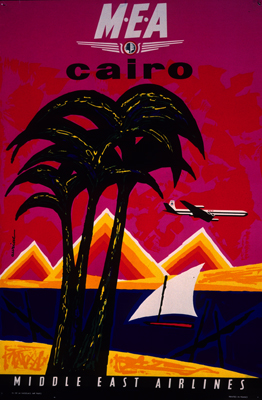- Security & Defense
- US Defense
- International Affairs
- US Foreign Policy

An important first step in rebooting U.S. Middle East policy and more effectively addressing the roots of the problems that have manifested into threats to U.S. and international security demands that we more holistically embrace Sun Tzu’s maxim of the importance of knowing one’s enemy.1 It also requires a better appreciation of Clausewitz’s dictum that political leaders and their senior military commanders must understand the true nature of the conflict they are fighting.2 Tangible threats posed by extremists from ISIS, al-Qaeda, and other violent and destabilizing radical Islamist groups can—and should—be interdicted decisively, ideally through multi-lateral responses, but also unilaterally when these options are not feasible.
But such overt and largely kinetic efforts, while important, are limited in their effect to the attrition of symptoms of the most serious and enduring threat that we face in the Middle East. You cannot kill, capture, or incarcerate an idea, and it is the radicalizing ideas undergirding militant Islam that inspire misguided young men from around the world to attack the U.S. and its interests. The hostile Islamic extremist ideology is the root cause of the most serious threats we face in the Middle East and defines the nature of the war in which we have embarked.
Early on in what would be a protracted war against ideologically motivated extremists, an American president admonished the Nation that “We face a hostile ideology global in scope…ruthless in purpose, and insidious in method. Unhappily, the danger it poses promises to be of indefinite duration.” While eerily similar to the political discourse in the early years of the War on Terror, this warning was made by President Eisenhower in his farewell address to the nation on January 17, 1961. President Eisenhower continued on in this speech warning that, “To meet it successfully, there is called for, not so much the emotional and transitory sacrifices of crisis, but rather those which enable us to carry forward steadily, surely, and without complaint the burdens of a prolonged and complex struggle with liberty the stake.”
The United States and our NATO allies mobilized all instruments of national power in what indeed became a steady approach to the prolonged and complex struggle that eventually defeated Soviet Communism, effectively winning the Cold War almost three decades later. Notably, the comprehensive multifaceted effort to defeat Communism included concerted efforts to know the enemy we confronted. In this case the enemy included the Soviet’s military forces and those they supported around the world such as in Cuba, Vietnam, and in Soviet satellite states. But there was recognition among policy makers that the enemy also included the ruthless and insidious communist ideology itself.
In the course of the U.S. and West’s victory over Soviet communism, great efforts were made to understand the underpinnings and complexities of this hostile ideology. Entire disciplines were stood up at our finest academic institutions and other centers to study communism, its thought leaders, and ideological roots. Through these efforts, communism’s internal inconsistencies, ideological fractures, and other weaknesses were exposed. Scholars and policy analysts developed the expertise to identify debates over strategy, and disagreements over timing and tactics among communist leaders and ideologues. Eventually these and other fault lines and failures of communism were exposed and this contributed to its ultimate imploding on itself by popular demand.
The implosion of Soviet communism is a relevant precedent to America’s challenges of rebooting its policies in the Middle East and taking a more informed tack in our approach to addressing the roots of the most pernicious threats to U.S. national security emanating from the region. We have failed to heed an important and hard earned lesson from our victory in the Cold War, namely that a key component of a comprehensive policy to defeat an ideologically motivated enemy is to exploit opportunities to discredit and delegitimize the ideology itself in the eyes of its misguided adherents.
Most Americans—even those that came of age long after the defeat of Soviet communism—recognize the names and even images of influential communists ideologues and leaders like Marx, Engels, Lenin, Stalin, Khrushchev, Guevara, and Castro. Over thirteen years since 19 ideologically motivated terrorists of Middle Eastern descent—15 of whom hailed from Saudi Arabia—attacked the United States and in the midst of a resurgent radical Islamist threat in Iraq and Syria, the average U.S. citizen as well as a majority of our policy makers are far less likely to be familiar with the most influential thought leaders inspiring the adherents of radical Islam. The most important thought leaders dead or living in al-Qaeda, for example, are not Usama bin Laden, Ayman al-Zawahiri, or other well-known operational leaders. Instead, findings from rigorous analysis of influence in the Jihadi Salafist network shows they are Middle Easterners unknown to most Americans and Westerners, people like Abu Muhammad al Maqdisi, Abu Basir al-Tartusi, Abd al-Qadir ibn Abd al-Aziz, and Abu Qatada al Filistini.3
There is clear evidence that the grand ideas developed by these scholars and other ideologues lesser known in the West inform the content of the radicalization efforts carried out by extremist recruiters—in mosques, madrasas, and online—and inspires terrorist attacks in the Middle East and around the world. To be clear, these radicalizing ideas are not sanctioned within mainstream Islam or maintained by the vast majority of Muslims. In fact, the most powerful weapon that can be wielded against these radicalizing ideas are the counterarguments and responses by respected Salafist clerics who may share many of the extreme views of these radicals such as establishing and governing Islamic states, but differ on critical interpretations of how to achieve these ends, namely whether it is permissible to kill innocents in the pursuit of their objectives.4
Prevailing against the threats we face in the region calls for a more informed appreciation of the enemy and recognition of the real nature of the conflicts we are addressing. Thus far we have largely failed on both accounts. Clausewitz acknowledges that, “The aim of war should be to defeat the enemy,” but also that, “The conquest of his whole territory is not always necessary, and total occupation of his territory may not be enough.”5 Denying extremists safe havens and the ability to seize territory are important parts of our strategy. The key terrain in this ideological struggle, however, may be between the ears of these extremists, their supporters, and their would-be recruits, who conspire to do us harm.
Rebooting in the Middle East and embarking on a path that restores greater confidence in U.S. power and influence is achievable. But we must recognize that we are—once again—engaged in an ideological struggle, make concerted efforts to understand our enemy’s ideology and how best to undermine its influence, and destroy its appeal as prerequisites for long term success going forward.
1. Sun Tzu’s quoted passage from the Art of War is often translated as, “It is said that if you know your enemies and know yourself, you will not be imperiled in a hundred battles.”
2. Carl von Clausewitz (On War [Michael Howard and Peter Paret, eds. and trans.] [Princeton University Press, 1984], pp. 88-89) warns that: “The first, the supreme, the most far-reaching act of judgment that the statesman and commander have to make is to establish…the kind of war on which they are embarking; neither mistaking it for, nor trying to turn it into, something that is alien to its nature. This is the first of all strategic questions and the most comprehensive.”
3. The Combating Terrorism Center (CTC) at West Point conducted a systematic mapping of ideological influence within the Jihadi Salafist movement through a citation analysis of the most read texts in al-Qaeda’s online library. This analysis identified the most influential ideologues—and their radicalizing ideas. The results of this seminal study, led by Dr. William McCants, are presented in the CTC’s Militant Ideology Atlas available online at https://www.ctc.usma.edu/posts/militant-ideology-atlas.
4. However, the U.S. and West are limited in their ability to overtly challenge the validity of the arguments that extremist groups such as al-Qaeda and ISIS use to inspire and justify their violent and radical behavior. Identifying and amplifying the arguments of Salfist scholars, clerics, and other individuals that criticize and condemn the strategies and tactics used by extremists groups is more likely to resonate with these groups and have an effect. See Jarret Brachman and William McCants, “Stealing al Qaeda’s Playbook,” West Point Combating Terrorism Center available at https://www.ctc.usma.edu/posts/stealing-al-qaidas-playbook.















